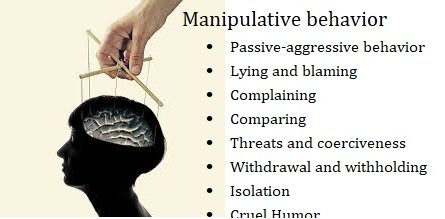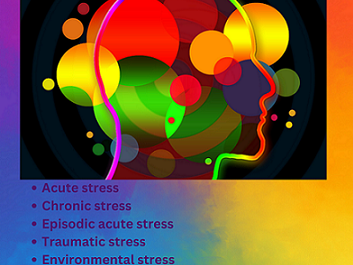“Pessimistic” is an adjective used to describe a negative or gloomy outlook on life or a particular situation. It refers to someone who tends to expect the worst and sees things in a negative light. Pessimists believe that bad things will happen, and even if good things do occur, they won’t last.
For example, a pessimistic person might believe that they will fail at a task before they even try, or they might assume that a situation will end badly without considering the potential positive outcomes.
A pessimistic outlook can be a result of past experiences, a lack of confidence or optimism, or a general feeling of hopelessness. However, it’s important to note that being pessimistic doesn’t necessarily mean that someone is always unhappy or depressed. A pessimistic outlook on life can have a profound impact on mental health, relationships, and overall well-being.
The Effects of Pessimism
Pessimism can have numerous effects on an individual’s life. It can impact their mental and emotional health, their relationships, and their ability to achieve their goals. Here are a few ways that pessimism can affect people:
Mental and Emotional Health: Pessimism can contribute to anxiety, depression, and stress. Individuals who have a pessimistic outlook often feel helpless and hopeless, leading to negative thoughts and emotions.
Relationships: Pessimism can negatively impact relationships with friends, family, and romantic partners. Pessimists may have a hard time connecting with others because they are constantly expecting the worst.
Achievement: Pessimists may struggle to achieve their goals because they don’t believe that their efforts will pay off. They may give up too soon or not put in the necessary effort to succeed.
How to Overcome Pessimism
Although pessimism can have a significant impact on an individual’s life, it’s possible to overcome it. Here are a few tips to help individuals shift their mindset:
- Practice Gratitude:
Pessimists tend to focus on the negative aspects of life. Practicing gratitude can help shift their mindset to a more positive one. Encourage individuals to take time each day to think about the things they are grateful for, no matter how small.
- Challenge Negative Thoughts:
Pessimists often have negative thoughts that they believe are true. Encourage individuals to challenge these thoughts by asking themselves if there is evidence to support them.
- Focus on Solutions:
Instead of dwelling on problems, encourage individuals to focus on solutions. When faced with a difficult situation, ask them to consider what they can do to improve the situation rather than what’s wrong with it.
- Surround Yourself with Positive People:
Surrounding oneself with positive people can help shift their mindset. Encourage individuals to spend time with friends and family who are supportive and optimistic.
- Practice Mindfulness:
Mindfulness can help individuals become more aware of their thoughts and emotions. Encourage them to take a few minutes each day to meditate or simply sit quietly and observe their thoughts without judgment.
Pessimism and Mental Health
Pessimism and mental health are closely linked, as a pessimistic outlook can have a significant impact on our mental and emotional well-being. Pessimism is a negative mindset characterized by a belief that things will not work out, and that bad things are more likely to happen than good things. This kind of thinking can lead to feelings of anxiety, depression, and hopelessness.
Studies have shown that pessimism can contribute to the development of mental health conditions such as anxiety and depression. Pessimistic individuals are more likely to have negative thoughts and beliefs about themselves and the world around them, which can fuel feelings of hopelessness, worthlessness, and despair. These negative thoughts can become self-fulfilling prophecies, as individuals may become more likely to give up on their goals or stop trying altogether.
Pessimism VS Optimism
On the other hand, optimism has been associated with better mental health outcomes. Optimistic individuals tend to have a more positive outlook on life and are more likely to view challenges as opportunities for growth and learning. They also tend to have better-coping strategies and are better able to bounce back from setbacks and failures.
However, it’s important to note that pessimism and optimism are not fixed personality traits and that it’s possible to shift your mindset from pessimistic to optimistic. This can be achieved through a variety of techniques such as cognitive-behavioral therapy, mindfulness meditation, and gratitude practices.
Treatment:
Cognitive-behavioral therapy (CBT) is a type of therapy that helps individuals identify and challenge negative thoughts and beliefs, and replace them with more positive, realistic ones. CBT can be an effective treatment for depression and anxiety and has been shown to help individuals develop more positive, optimistic mindsets.
Mindfulness meditation is another technique that can help individuals develop a more positive outlook on life. Mindfulness involves focusing on the present moment, and accepting thoughts and feelings as they come, without judgment. This can help individuals become more aware of their negative thought patterns, and learn to let go of them.
Gratitude practices, such as keeping a gratitude journal or making a daily gratitude list, can also help to shift a pessimistic mindset. By focusing on the positive aspects of life, and expressing gratitude for the things we have, we can cultivate a more positive outlook on life.
Conclusion
Pessimism can have a significant impact on an individual’s life, but it’s possible to overcome it. Encourage individuals to practice gratitude, challenge negative thoughts, focus on solutions, surround themselves with positive people, and practice mindfulness. These simple tips can help shift their mindset to a more positive and optimistic one, leading to better mental and emotional health, stronger relationships, and increased achievement.




